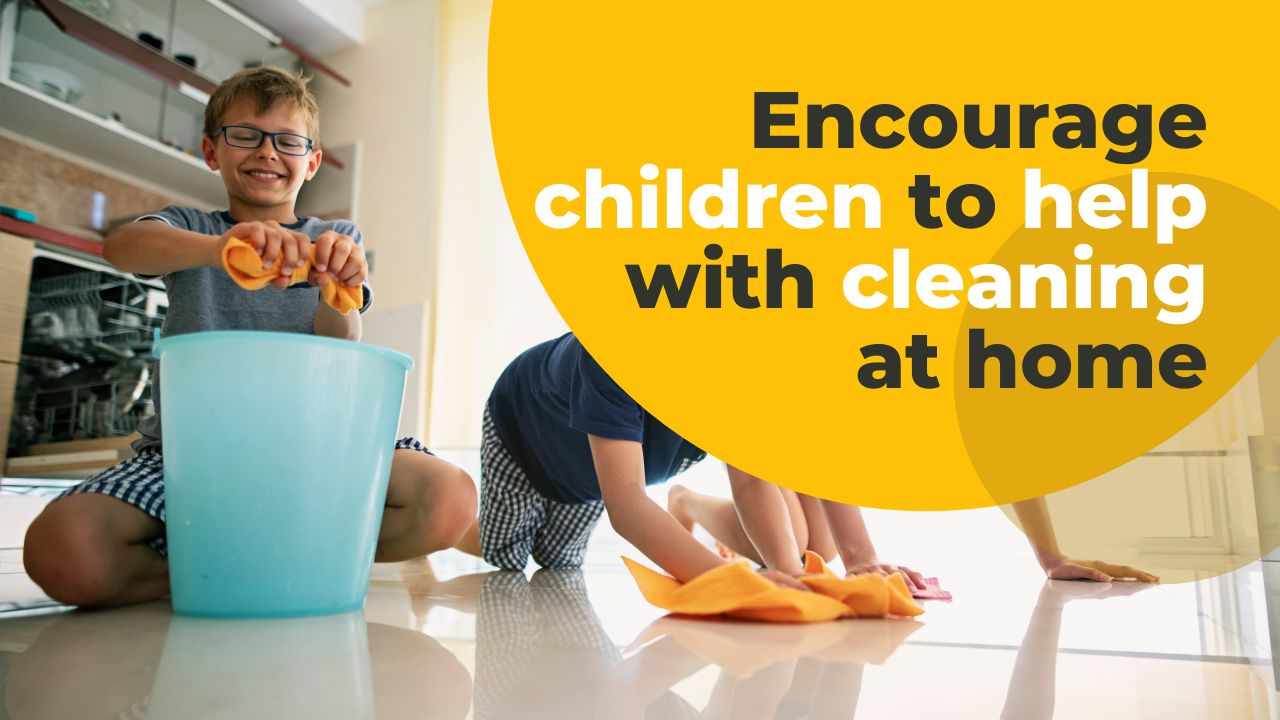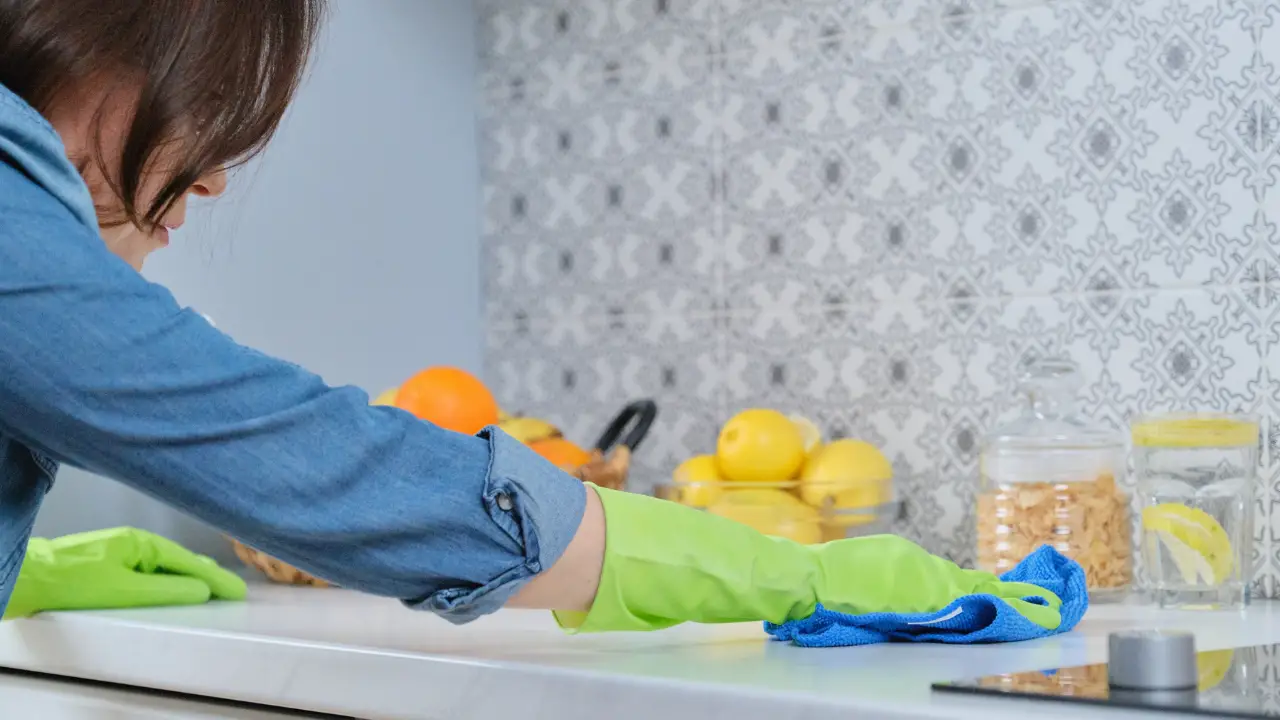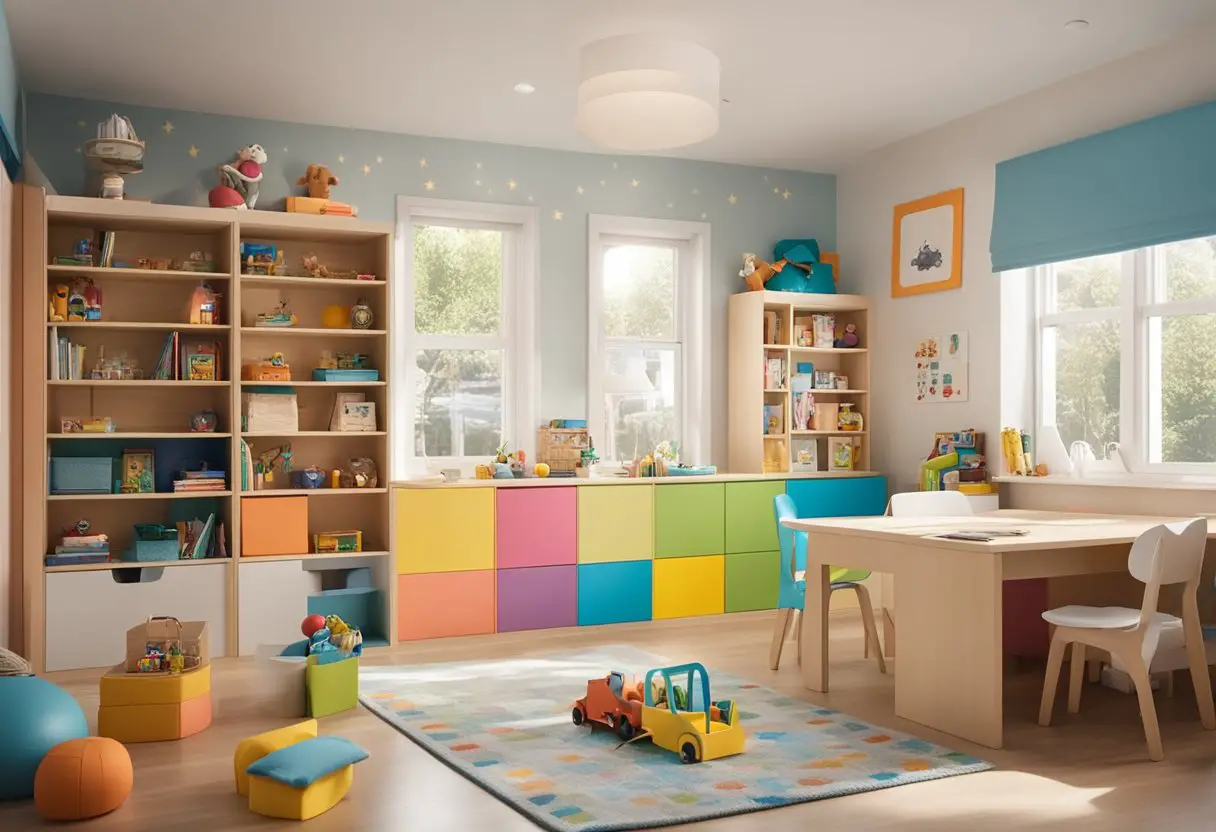Have you ever walked into your child’s bedroom only to be greeted by a chaotic mess that resembles a crime scene from a suspenseful TV show? The washing basket you placed in the room seems pointless, as dirty clothes find their way to the floor effortlessly. It’s no wonder your child can never locate anything amidst the overwhelming clutter that fills their room – almost like a bomb site.
So, how can you motivate your children to clean their rooms and contribute to the overall tidiness of the house? Many parents choose the easy route by offering money or treats as an incentive. While this may yield results to some extent, the problem lies in the fact that their primary focus becomes the end reward rather than doing a thorough job. They are likely to rush through the task just to get their hands on that quick cash.
Now, what’s the secret to encouraging your children to grab the duster, handle the vacuum cleaner, and put things back where they belong?
Table of Contents
Here are our top tips for getting your kids to lend a hand with household cleaning.
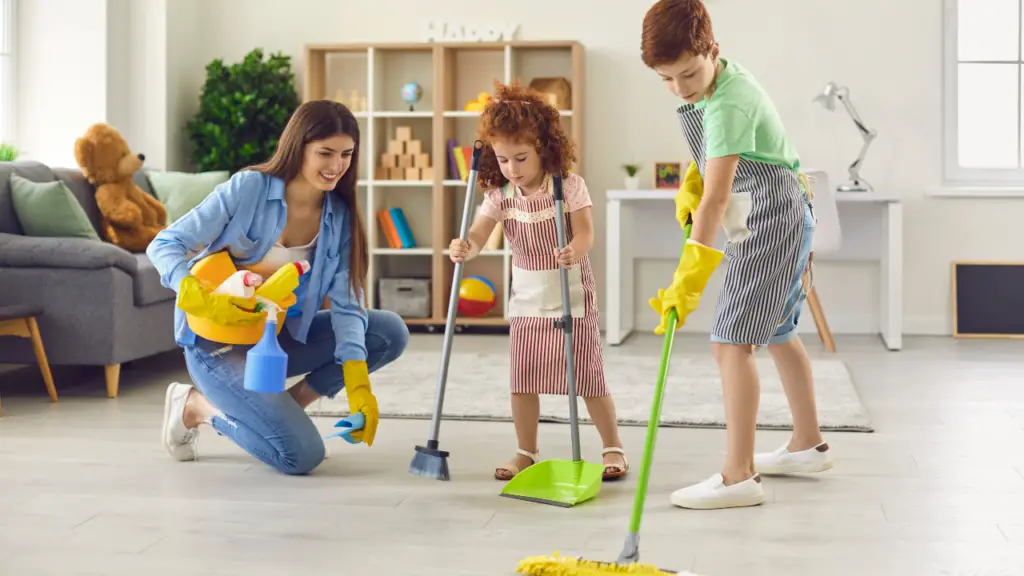
Don’t Ask
Asking your kids to clean up can often result in their favorite word: “No!” It may sound harsh, but instead of asking, it’s better to assertively state that it’s time to clean up. Avoid using a harsh tone; simply communicate it matter-of-factly. If they still insist on saying no, make it clear that it’s not up for negotiation – it’s a statement that it is time to clean up.
To avoid them perceiving it as a punishment, let them know that you’ll be joining them in their cleaning crusade. By doing so, you show that you’re not just assigning them a chore but are willing to lend a helping hand. Moreover, regardless of the task at hand, it can be an opportunity for quality time together and can be made enjoyable with the right attitude.
Turn it into a Game
Children naturally have a competitive spirit, so it’s a smart idea to transform the cleaning routine into an enjoyable game. Specifically, you can turn it into a race.
Kids love the thrill of winning against their parents and taking on challenges. Their competitive nature will drive them to clean with enthusiasm. One idea is to divide a room into two sections and assign one side to each of you, then see who can finish cleaning their side first.
However, before starting the cleaning game, it’s essential to highlight that the task should be done properly, without hastily stuffing clothes, toys, books, or other items out of sight.
If you are unable to actively participate due to other household responsibilities, you can introduce a timer. Together, agree on a specific timeframe and challenge them to complete the cleaning before the timer runs out. This adds an extra element of excitement and motivation to the task.
Are We There Yet?
How many times have you embarked on a car journey with your kids, only to be bombarded with the timeless question, “Are we there yet?” every half an hour? It’s probably happened quite frequently. The truth is most children, especially younger ones, struggle with patience. They’re not concerned about the hours it takes to reach the seaside; they simply yearn to feel the sand between their toes as quickly as possible.
Here’s a clever way to harness their impatience and enlist their help with cleaning around the house. Let’s say they have a party to attend at a friend’s house at noon. Since they’ll be excited about it, they’ll likely be up and ready early in the morning. This interval between waking up and leaving for the party presents a valuable opportunity.
Seize this chance to involve them in household chores. Engage in conversation about the upcoming party as you clean together. Fuel their excitement by talking about how much fun they’ll have at the event. Their anticipation for the party will likely overshadow the fact that they have a duster in hand, and they might not even notice the sound of the vacuum cleaner they’re pushing around.
Praise
It’s crucial to always acknowledge and praise the effort your kids put into their cleaning tasks. You’ve guided them this far, so it’s essential not to undermine their progress by nitpicking their cleaning skills. Criticizing their efforts may result in their willingness to help to diminish, and they might become frustrated and disengage from the task altogether.
If they happen to make mistakes during the cleaning process, which is quite common, it’s best to address those concerns after the cleaning is completed. Remember to offer feedback constructively, framing it as helpful tips rather than criticism. This approach ensures that your children perceive the feedback as valuable guidance, motivating them to improve without feeling discouraged.
Plan
Planning is crucial. Nobody enjoys having tasks or chores sprung on them unexpectedly. Informing your child that it’s time to clean the house the moment they step through the door or right after they’ve just woken up and yawned won’t generate much enthusiasm.
To foster a more positive response, it’s important to schedule your cleaning sessions in advance. Choose a specific day ahead of time, allowing everyone to prepare and anticipate the cleaning tasks ahead.
T.V. off Music on
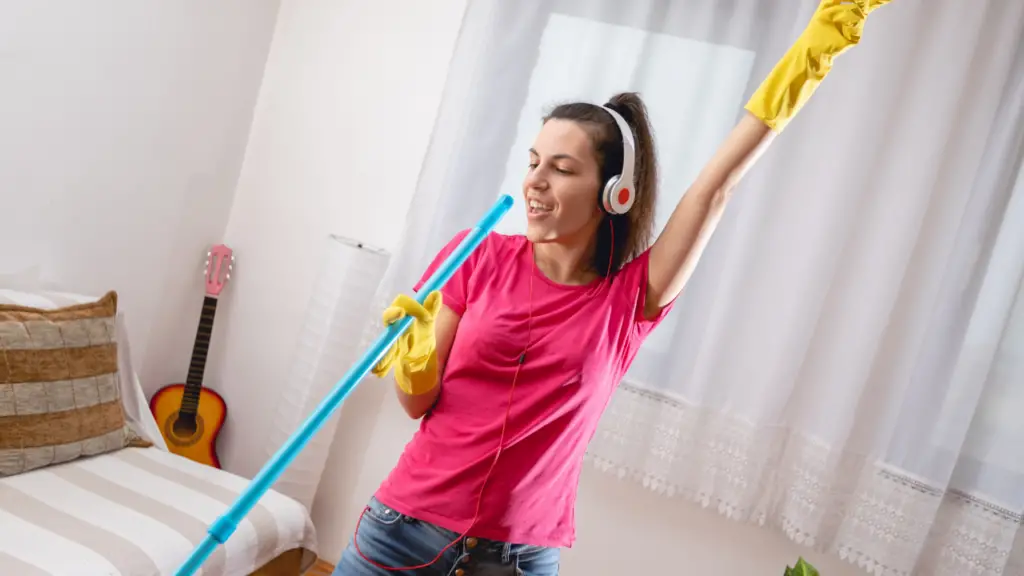
Cleaning becomes not only faster but also more enjoyable when accompanied by music. Choose one of your child’s favorite albums and sing along together while you tackle the dusting and decluttering tasks.
To maintain focus, it’s best to turn off the television. Unlike music, television is visually engaging and can easily distract a child from the cleaning task.
Depending on your child’s age, it’s important to keep other distractions, such as smartphones, tablets, and any other distracting technology, out of reach while cleaning is in full swing. These devices have the potential to divert their attention from the task at hand.
One in One Out
Children derive joy from playing with toys, but they often show reluctance when it comes to putting them back. Foster a sense of responsibility in your child by establishing a rule that before they take out a new toy, the ones already out should be tidied away first.
Take the time to explain to them that leaving toys scattered on the floor increases the risk of them getting broken or losing their parts.
It’s important to provide boxes or baskets that are appropriately sized to accommodate the toys. Younger children, in particular, may become frustrated if they are unable to fit a specific toy into a particular box or basket.
Finally
Instil a sense of routine and responsibility from an early age, making it a standard practice. For instance, you can start teaching children to tidy up their toys as soon as they begin to walk. Initially, you will likely be doing most of the work, but it’s important to remember that children are highly impressionable during these early stages of life. Their natural curiosity will likely lead them to join in and mimic what you’re doing.
However, it’s crucial not to expect too much, especially in the beginning. Developing these habits takes time and patience. Kids who start putting their toys away from a young age often grow into teenagers who willingly take on responsibilities, such as preparing meals for their parents when they return from work.

